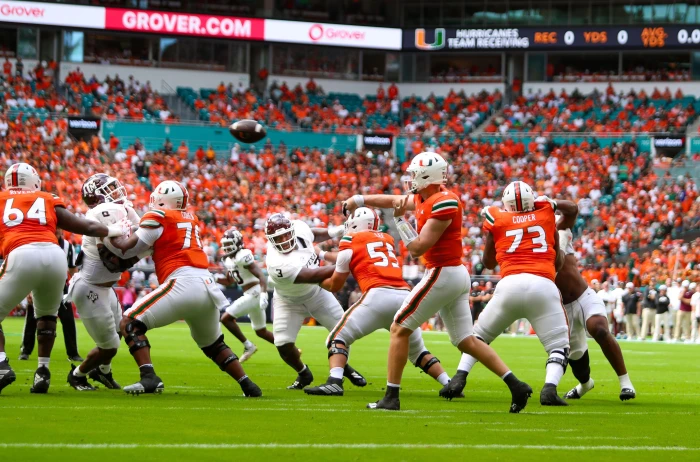
College football is one of the most popular sports in the United States, drawing millions of fans to stadiums and television screens each year.
The sport has a rich history dating back to the late 19th century, and it has evolved into a complex and competitive landscape.
The Rise of the SEC
Over the past two decades, the SouthEastern Conference (SEC) has emerged as the dominant force in college football, and has consistently produced some of the best teams and players in the country.
There are a number of factors that have contributed to the SEC's success, one of which is the conference's deep recruiting pool. The SEC is home to some of the country's most affluent and populous states, such as Florida, Texas, and Georgia, giving it a recruiting advantage over other conferences.
Another factor is the SEC's commitment to winning, boasting some of the best coaches, and constantly looking for ways to improve their teams. Some of these coaches include greats like Nick Saban, Kirby Smart, and Jimbo Fisher. The SEC is also known for its aggressive recruiting tactics and is not afraid to take risks on talented players.
FanDuel College football odds have played a significant role in the excitement surrounding college football. The availability of odds and betting options adds another layer of engagement for fans, making each game even more thrilling.
The Rise of the Transfer Portal
The transfer portal has become a significant force in college football in recent years. The portal allows players to transfer to other schools without having to sit out a year, giving players more control over their careers.
The transfer portal has significantly impacted the competitive balance of college football. Players can now move to schools that are better suited to their needs, which has made it more difficult for teams to maintain their dominance.
For example, in 2022, former Oklahoma quarterback Caleb Williams transferred to USC. Williams is one of the most talented quarterbacks in the country, and his transfer has made USC a legitimate contender for the National Championship and earned him a Heisman Trophy last year.
The Future of College Football
The future of college football is uncertain, but it also has great potential. The sport is facing several challenges, but it also has a lot of opportunities.
One of the biggest challenges facing college football is the transfer portal, which has made it easier for players to transfer schools, leading to more instability in the sport.
It has also made it more difficult for coaches to build and maintain successful teams. Colorado’s Deion Sanders has been able to build an almost entirely new team this year based on the portal.
Another challenge facing college football is Name, Image, and Likeness (NIL) rights, which allow players to profit from their exposure. This has led to some athletes signing lucrative endorsement deals, creating a new financial divide between players.
Player safety is also a significant concern in college football, which is one of the most dangerous in the world, and there have been several high-profile injuries in recent years. There is a growing movement to make the sport safer, but how this will be achieved is unclear.
Despite these challenges, college football remains a popular and exciting sport with a rich history and it continues to produce some of the best athletes in the world. College football is also a major economic driver for many communities.
Conclusion
College football is a complex and exciting sport with a rich history, and next year, it will unveil another chapter when it expands to a 12-team playoff.
Despite some growing challenges, it remains incredibly popular and vibrant. Fans can use FanDuel College football odds to wager on their favourite teams and players and enjoy the excitement of the game.
